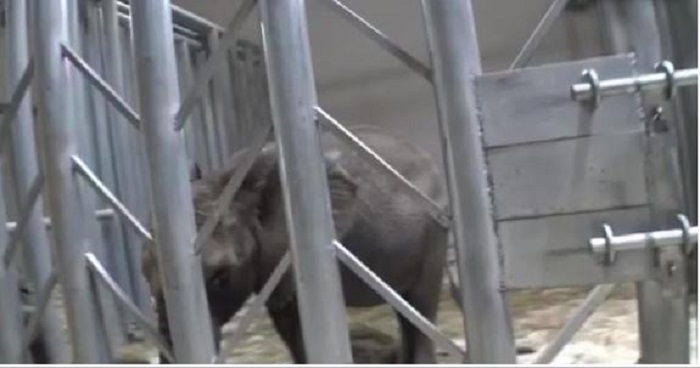0%

(Agencies)
ZIMBABWE: The government of Zimbabwe has tried to defend it’s position in selling the elephant to various countries by saying it’s ‘Better than culling’.
Zimbabwe’s latest news about the elephant sale has again raised the question about the measures to be taken for wildlife conservation and the duties of the concerned countries.
In an interview with an international news channel CNN, Zimbabwe’s Environment Minister Mangaliso Ndlovu said the decision of selling wildlife has been taken on behalf of the wild animals like elephant his countries have been sheltering.
While asked if he was concerned about the news of the traumatized condition and death of the exported wild animals, he skipped the answer; yet, defended the decision saying the fund raised from the sale of wildlife would be used for the betterment of the animals.
The Minister added that the problems caused by the ‘massive overstocking’ of elephants could not be better handled as the project they are launching is “much more sustainable and better than culling.” He interpreted the coercive activities elephants were facing as the attempts of acclimatizing attempts.
What is CITES?
The Convention on International Trade in Endangered Species of Wild Fauna and Flora(CITES) is an international agreement made by and set for governments. One of the major objectives of it is to ensure that international trade of wild animals and plants does not threaten their survival.
To refrain from the abiding regulations of the Convention on International Trade in Endangered Species of Wild Fauna and Flora(CITES) which agreed to ban the international sale of animal products, it is said that Zimbabwean President Emmerson Mnangagwa is considering pulling itself out of CITES.
For the betterment of elephants?
The Minister tried to draw the attention towards the urgency of addressing the economic needs of the country and people contributing for the safeguard of animals and said, “In our Hwange National Park we have a capacity of close to 15,000 elephants but currently we are holding more than 53,000 elephants, which, in fact, is extensively degrading the habitat and affecting the biodiversity in part.”